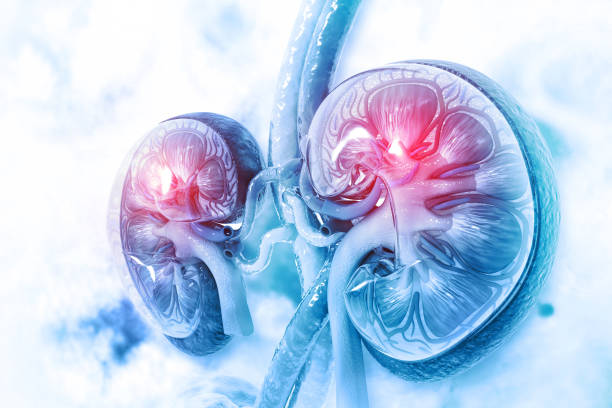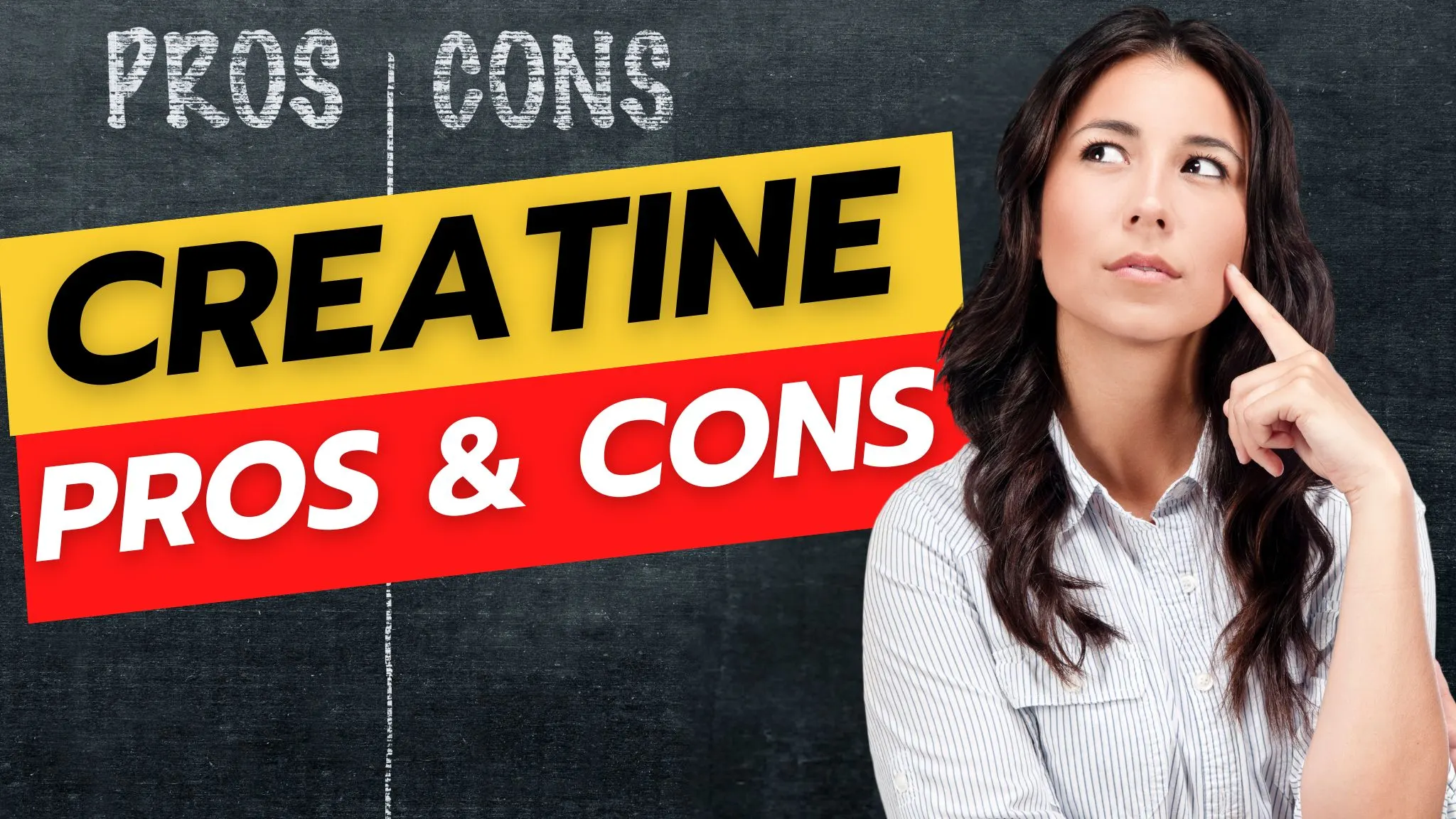Creatine Supplement: Creatine Pros and Cons You Need to Know
Pros and Cons of Taking Creatine Supplements
Creatine is one of the most popular dietary supplements used by athletes and fitness enthusiasts.
Understanding the pros and cons of creatine can help you decide whether it aligns with your goals and lifestyle.
This article explores the benefits of creatine and its potential side effects, providing a balanced view based on scientific evidence.

Article Outline
- What Are the Benefits of Taking Creatine?
- How Does Creatine Help Increase Muscle Mass?
- Can Creatine Improve Brain Health?
- What Are the Side Effects of Creatine Supplementation?
- Does Creatine Affect the Kidneys?
- How Much Creatine Should You Take?
- Different Types of Creatine: Which Is Best?
- FAQs About Creatine Supplements
- Who Should Avoid Taking Creatine?
- Key Takeaways on Creatine Pros and Cons
1. What Are the Benefits of Taking Creatine?
Creatine supplementation offers several benefits for people aiming to boost their physical and cognitive performance.
- Improved Energy Production: Creatine helps regenerate adenosine triphosphate (ATP), the primary energy source for cells.
- Enhanced Athletic Performance: Studies suggest that creatine improves strength, power, and recovery during high-intensity activities.
- Better Muscle Health: Creatine supplementation may support muscle repair and reduce soreness after exercise.
For more insights, check out the ultimate guide to creatine supplements.

2. How Does Creatine Help Increase Muscle Mass?
Creatine is a natural amino acid that plays a vital role in muscle growth.
- Water Retention in Muscles: Creatine increases water content in muscles, making them look fuller and larger.
- Boosted Workout Intensity: Higher creatine levels allow you to lift heavier weights and perform more repetitions.
- Phosphocreatine Stores: Creatine replenishes phosphocreatine, providing sustained energy for muscles during workouts.
Learn more about how creatine impacts muscle size.
3. Can Creatine Improve Brain Health?
Research on creatine indicates that it may help support cognitive functions.
- Cognitive Benefits: Creatine supplementation on the brain has shown potential for improving memory and focus.
- Brain Health: Studies suggest that creatine might protect against neurodegenerative diseases.
- Creatine Deficiency: People with low creatine levels may experience cognitive issues, and supplementation may help.
For more, read our blog on creatine and ADHD.
4. What Are the Side Effects of Creatine Supplementation?
While creatine is often safe for most people, side effects may occur, especially when you take too much.
- Digestive Issues: High doses of creatine can cause stomach cramps, diarrhea, or nausea. Learn more about creatine and digestive concerns.
- Water Retention: Some people report bloating due to increased water in muscles.
- Weight Gain: The extra water weight may result in temporary increases in body weight.

5. Does Creatine Affect the Kidneys?
Concerns about creatine’s impact on kidney health are common. However, most studies have found no evidence that creatine harms the kidneys in healthy individuals.
- Kidney Health: People with pre-existing kidney conditions should consult a healthcare provider before taking creatine supplements.
- Scientific Evidence: Research indicates that moderate doses of creatine are safe for long-term use.
Explore this topic further in our post on creatine supplementation side effects.

6. How Much Creatine Should You Take?
The recommended dose of creatine depends on your goals and health.
- Loading Phase: Start with 20 grams per day for the first week to saturate muscles. Read our guide on the creatine loading phase.
- Maintenance Dose: Consume 5 grams of creatine daily to maintain levels.
- Monitor Side Effects: Adjust your intake if you experience side effects.
7. Different Types of Creatine: Which Is Best?
Several forms of creatine are available, each with unique characteristics.
- Creatine Monohydrate: The most researched and effective form of creatine. Check out our essential guide to creatine monohydrate.
- Buffered Creatine: Claims to reduce stomach issues, though evidence is limited.
- Creatine Hydrochloride: Easier to dissolve in water, making it a popular choice. Read more about creatine HCl vs. monohydrate.
8. FAQs About Creatine Supplements
- Can creatine cause dehydration? While some believe creatine may lead to dehydration, studies have shown it does not increase the risk.
- Should older adults take creatine? Research suggests that creatine may help improve muscle health and bone health in older adults.
- Can women take creatine? Yes, women can benefit from creatine for performance and recovery.
See our top reasons women should take creatine.
9. Who Should Avoid Taking Creatine?
Certain individuals should approach creatine use with caution.
- Health Conditions: Avoid creatine if you have a kidney condition or other chronic health issues.
- Pregnant or Breastfeeding Women: Limited research makes it advisable to avoid creatine during pregnancy or breastfeeding. Learn more about creatine safety for breastfeeding women.
- People with Allergies: Check for potential allergens in creatine products before use.

10. Key Takeaways on Creatine Pros and Cons
Pros:
- Enhances strength and power.
- Supports muscle mass and recovery.
- May benefit cognitive functions.
Cons:
- Potential for digestive issues.
- Water retention and temporary weight gain.
- Not suitable for individuals with certain health conditions.
Creatine is a natural supplement backed by extensive research. Whether creatine is right for you depends on your goals, health, and personal preferences.
Consult a healthcare provider before taking creatine supplements to ensure it’s safe for your individual needs.
References
Benefits of Creatine Supplementation:
Antonio, Jose, et al. "Common Questions and Misconceptions about Creatine Supplementation: What Does the Scientific Evidence Really Show?" Journal of the International Society of Sports Nutrition, vol. 18, no. 1, 2021, pp. 1-19. Springer Nature, https://jissn.biomedcentral.com/articles/10.1186/s12970-021-00412-w.
Creatine and Muscle Mass:
Cruz-Jentoft, Alfonso J., et al. "Creatine Supplementation to Augment Muscle Mass and Function in Aging and Disease." International Journal of Environmental Research and Public Health, vol. 19, no. 3, 2022, pp. 1-21. MDPI, https://pmc.ncbi.nlm.nih.gov/articles/PMC8949037/.
Creatine and Brain Health:
Avgerinos, Konstantinos I., et al. "Effects of Creatine Supplementation on Cognitive Function: A Systematic Review and Meta-Analysis." Nutrition Reviews, vol. 81, no. 4, 2023, pp. 416-431. Oxford Academic, https://academic.oup.com/nutritionreviews/article/81/4/416/6671817.
Side Effects of Creatine Supplementation:
Buford, Thomas W., et al. "International Society of Sports Nutrition Position Stand: Creatine Supplementation and Exercise." Journal of the International Society of Sports Nutrition, vol. 14, no. 1, 2017, pp. 1-19. Springer Nature, https://jissn.biomedcentral.com/articles/10.1186/s12970-017-0173-z.
Creatine and Kidney Health:
Kreider, Richard B., et al. "Safety and Efficacy of Creatine Supplementation in Exercise, Sport, and Medicine." Journal of the International Society of Sports Nutrition, vol. 14, no. 18, 2017, pp. 1-13. Springer Nature, https://jissn.biomedcentral.com/articles/10.1186/s12970-017-0173-z.
Creatine Dosage and Timing:
Forbes, Scott C., et al. "Effects of Pre- versus Post-Exercise Creatine Supplementation on Resistance Training Adaptations." Frontiers in Sports and Active Living, vol. 3, 2022, pp. 1-11. Frontiers Media, https://www.frontiersin.org/journals/sports-and-active-living/articles/10.3389/fspor.2022.1033842/full.
Types of Creatine:
Mulshine, Molly. "The One Fitness Supplement Worth Taking to Burn Fat and Build Muscle, According to Science." Business Insider, 8 Aug. 2024, https://www.businessinsider.com/creatine-most-effective-fitness-supplement-science-burn-fat-build-muscle-2024-8.
For More Training Advice + Diet and Lifestyle visit us Combat Creatine
PS: Make sure you check out the rest of our Training Guides:
Creatine
Creatine Supplements Ultimate Guide
Creatine Supplementation Side Effects
Best Creatine Monohydrate Gummies Review: Top 10 Best Creatine Gummies












